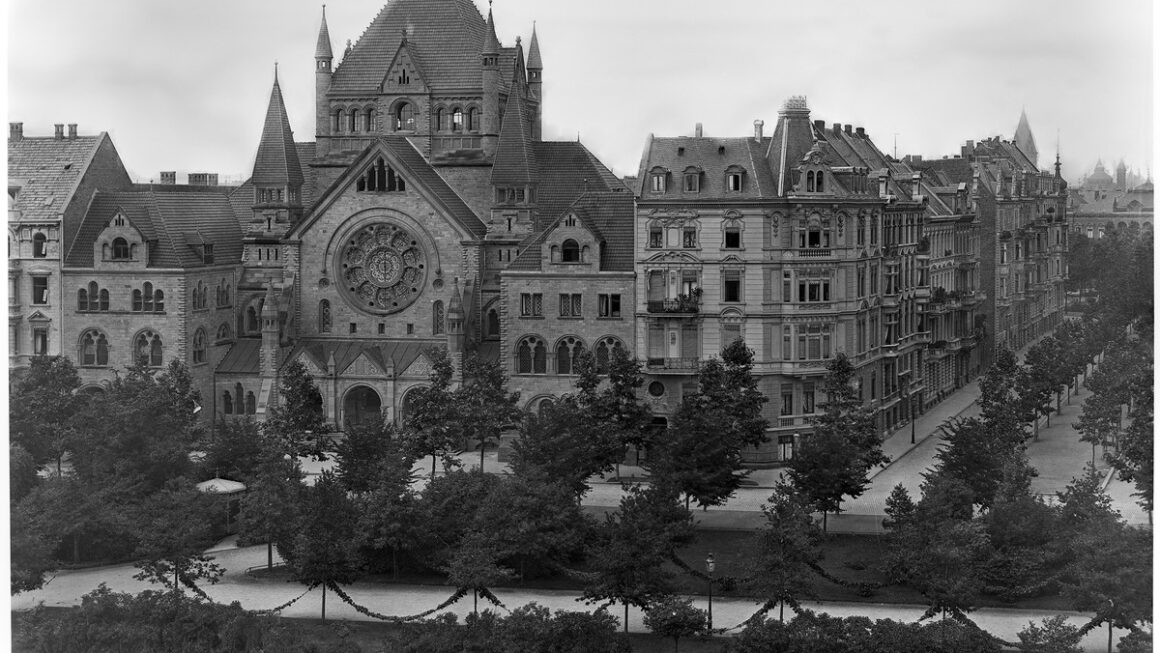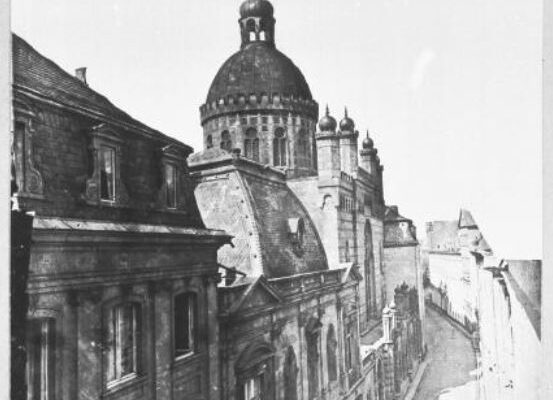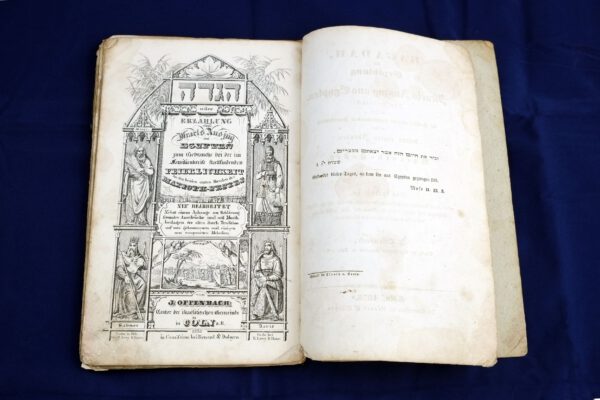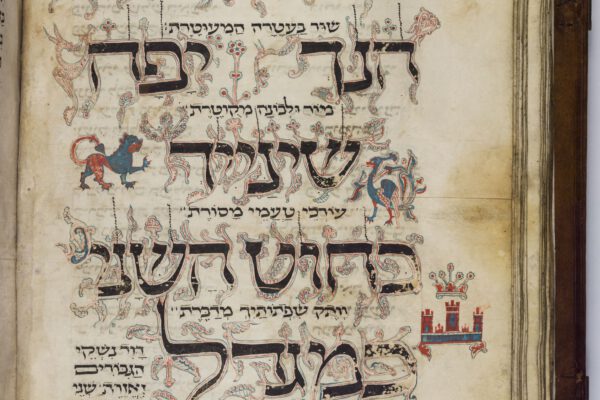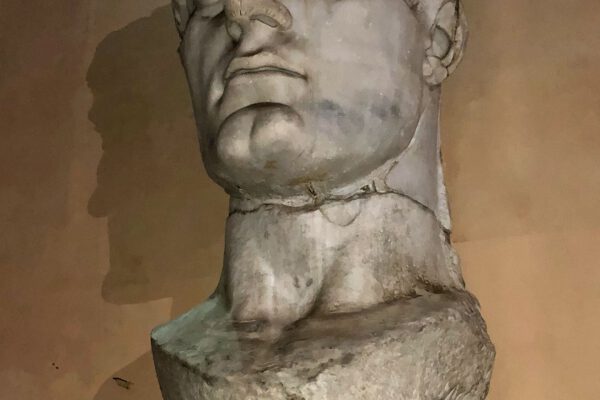The synagogue on Roonstrasse looks back on an eventful history: Completed in 1899, it shaped both Cologne’s cityscape and inner-Jewish developments. In accordance with the reforms in the nineteenth century, the bema, the elevated pulpit for the weekly reading of the Torah, was no longer located in the center of the room, but moved to […]
The Glockengasse Synagogue
After their expulsion from Cologne in 1424, Jews were not permitted to resettle in the cathedral city until 1798. After being readmitted, they founded a congregation and used the premises of the former convent of the Order of Saint Clare on Glockengasse. A steadily growing number of members led to the planning of a new […]
The Offenbach Hagadah
Isaac Offenbach, the father of the composer Jacques Offenbach, was a cantor in the Jewish community in Cologne for many years. He was a musician, composer, and bookbinder. In 1838, he penned the Haggadah, traditionally written in Hebrew, in German. In doing so, he presented a new adaptation of the scripture that has been read […]
The „Amsterdam Machsor“
Today, it is known as the “Amsterdam Machzor”: In the mid-thirteenth century, a French scribe created this very special manuscript for the Jewish community in Cologne, which is also one of the oldest Hebrew manuscripts from the Middle Ages in the German-speaking world. A machzor (Hebrew for “cycle”) is a prayer book for the Jewish […]
The decree of Emperor Constantine
In the early 4th century AD, Cologne, the capital of the Low Germanic province of the Roman Empire, attracted the attention of Rome and the Emperor. The members of the city council of the Colonia Claudia Ara Agrippinensium turned to the Emperor in an administrative matter, who probably took care of this matter immediately. For […]

